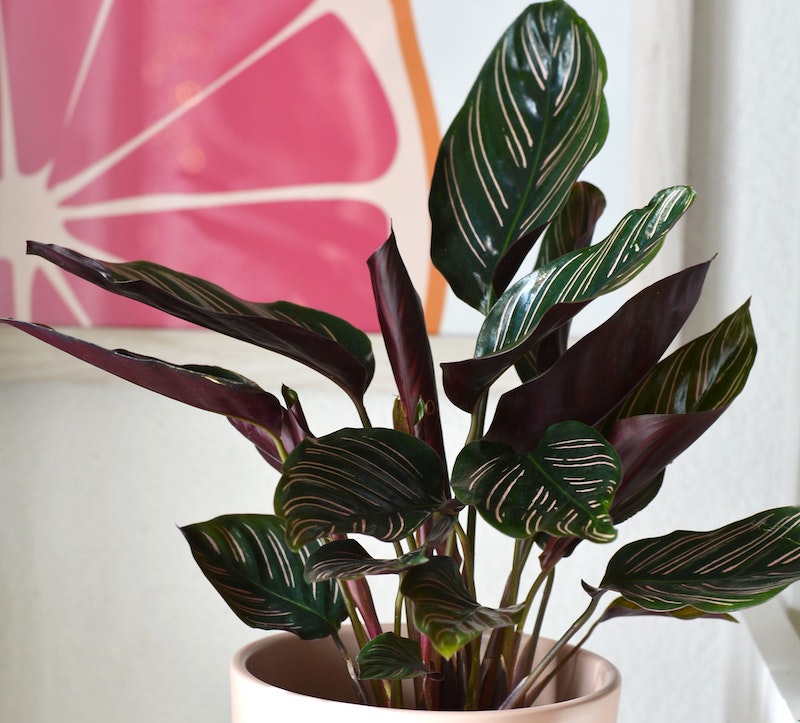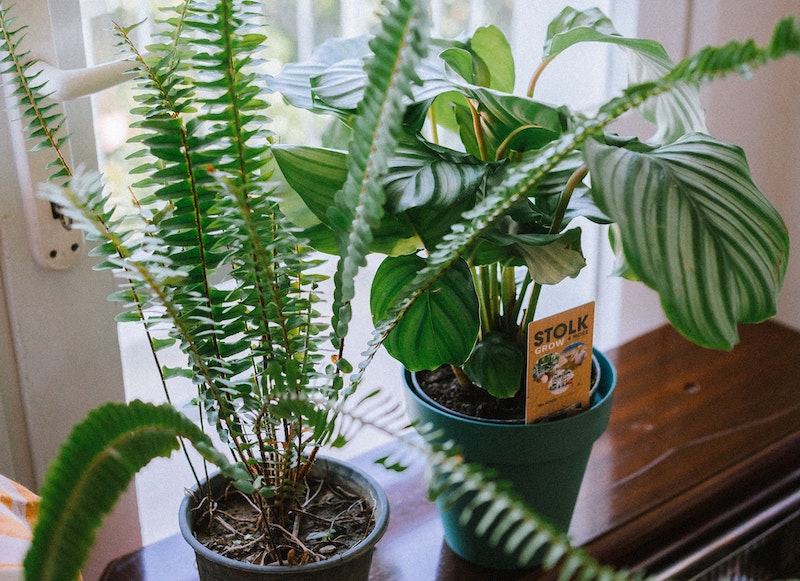Calatheas are lovely houseplants often grown for their striking foliage. These plants easily steal the show and become instant focal points in a home. Safety is always a concern with houseplants, but rest assured that Calathea houseplants are safe for pets and children. Calatheas are non-toxic for cats, dogs, and humans. These plants are not a food source and do not provide any value if eaten, but they are not harmful.

Is Calathea Poisonous to Children?
Calatheas are safe houseplants to have around curious little ones. All parts of the plant, including the leaves, stems, and flowers, are safe and non-toxic. It is best to teach children to leave houseplants alone, but toddlers and children of all ages will be okay if they eat any part of Calathea houseplants. Calatheas are safe houseplants to have in a home with children.
Is Calathea Poisonous to Dogs?
Nothing about Calathea houseplants will likely entice a dog, but if your canine is interested, know that these plants are not poisonous to dogs. The worst thing that will happen if your puppy or older dog eats a Calathea is that your plant will be damaged. Dogs will not be harmed if they eat or chew on the leaves, stems, or flowers of Calatheas.
Is Calathea Poisonous to Cats?
Calatheas are non-toxic to cats, making them safe houseplants for homes with felines. These plants have an upright growth habit, and nothing about them will likely entice cats or kittens. It is very possible cats will leave Calathea plants alone, but your pet will be okay if they nibble on the foliage.

Is Calathea Poisonous to Other Animals?
Calathea plants are safe and non-toxic to animals. Most animals are not prone to eat Calathea foliage or flowers, but they will be fine if they do.
Symptoms Of Calathea Poisoning
Always check with your doctor or veterinarian for guidance if you suspect Calathea poisoning. While Calathea plants are non-toxic, eating too much of anything can cause an upset stomach or make an animal feel bloated or full.
Here are some common symptoms to look out for:
- Feelings of fullness
- Upset stomach from overeating
Preventing Calathea Poisoning
While Calathea plants are pet-friendly, it is still best to protect them from pets, especially if you have a cat or dog who has previously eaten houseplants. Move the plant to a high shelf or location not accessible to pets to protect the plant and keep your furry friend out of trouble.
Pet Poison Helpline
If something were to happen to your furry friend, and you suspect that they are suffering from Calathea poisoning, there is a poison control hotline to call for 24/7 vet advice. It is called the Pet Poison Hotline, and their phone number is (855) 764-7661.
Sources: "Calathea." American Society for the Prevention of Cruelty to Animals. aspca.org
 |
Author Alison Cotsonas - Published 03-09-2023 |
